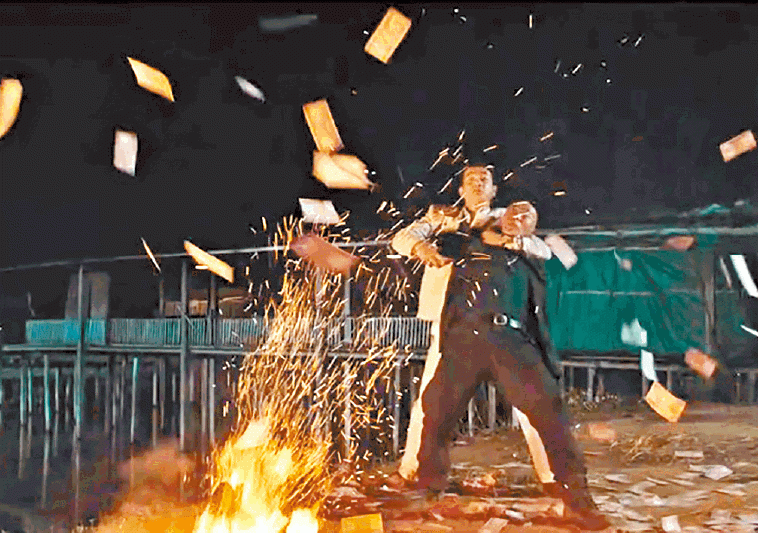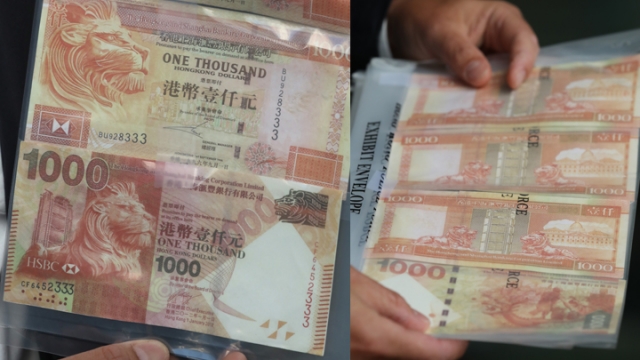A movie props master has been cleared of possessing counterfeit money following an appeal at the High Court. The case related to some 230,000 fake banknotes labelled as “props” and used in the award-winning crime thriller Trivisa.
In May, Cheung Wai-chuen, 50, was sentenced to four months in prison, suspended for two years alongside the co-accused Law Yun-lam. Cheung appealed the magistrate’s decision and his conviction was overturned by Mr Justice Albert Wong Sung-hau on Monday.
But the judge said that – given Cheung’s experience in the industry – he was “shocked” he did not know that permission was needed from the Monetary Authority for using the props. Cheung leads the company in charge of Wai Kang Production Limited.

During the appeal, Cheung said the magistrate did not examine all the props, and the ruling should not be made purely on the appearance of the notes.
Judge Wong agreed that the magistrate should have examined each and every one of the fake banknotes before deciding that they could all be mistaken for real ones.
He said the notes had the word “props” on them, but it was relatively small and hard to notice. He also said that the props did not have security features like real banknotes, but their appearance did resemble real banknotes to a large extent.
Lack of evidence
Wong said that he had to clear Cheung of his conviction because the magistrate did not examine the notes in order to consider expert evidence submitted to the court. Plus, there was not enough evidence to show that Cheung knew the props would be considered counterfeit money under current laws.
Wong said that, even if Cheung did not have any unlawful intentions, it was a “serious” incident since it would be difficult to ensure that the notes would not fall into hands of those with unlawful intentions.

He also said that it was difficult for the court to predict how the ruling would impact the development of the industry, since he could only rule according to the evidence.
Tenky Tin Kai-man, vice-chair of the Federation of Hong Kong Filmmakers, welcomed the ruling. He said he has been in the industry for 39 years, but he and the government’s Film Services Office did not know about the requirement to apply to the Monetary Authority.
He said the industry did not agree with shooting films with unlawful means, but believed that the current mechanism was inadequate.
He added that he hoped the case could help the industry understand the relevant laws and set up a channel of communications with the government.
